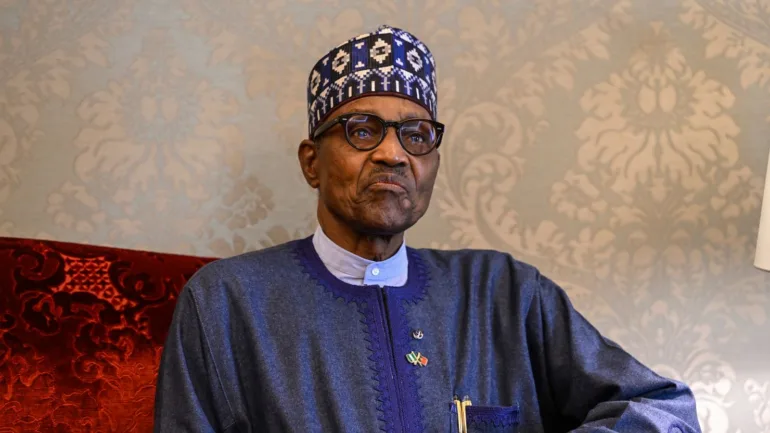Former Nigerian President Muhammadu Buhari has died at the age of 82. His passing was confirmed on Sunday evening in a brief statement by his former spokesperson, Garba Shehu.
“The family of the former president has announced the passing on of Muhammadu Buhari, GCFR, this afternoon in a clinic in London,” Shehu said. The nature of his illness was not disclosed, but he had reportedly been receiving treatment in the UK for several days.
Buhari served as Nigeria’s democratically elected president from 2015 to 2023, and previously as military Head of State from 1984 to 1985.
His death has triggered a wave of condolences across the country. President Bola Tinubu, his successor and long-time ally, expressed deep sorrow and directed that national flags be flown at half-mast. According to presidential spokesperson Bayo Onanuga, Vice President Kashim Shettima has been sent to the UK to accompany Buhari’s remains back to Nigeria.
From Daura to the Presidency
Born on December 17, 1942, in Daura, Katsina State, Buhari was raised by his mother after his father died when he was four. He received military training in Nigeria, the UK, India, and the US, and rose through the ranks to become governor of Borno State in 1975 and later Head of State in 1984 following a military coup.
He also held key positions including Federal Commissioner for Petroleum Resources and Chairman of the Nigerian National Petroleum Corporation (NNPC). In 1994, he was appointed Executive Chairman of the Petroleum Trust Fund.
Democratic resurgence and legacy
Buhari contested for the presidency three times—2003, 2007, and 2011—before winning in 2015 under the All Progressives Congress (APC), defeating incumbent President Goodluck Jonathan. The victory marked the first time in Nigeria’s history that an opposition candidate unseated a sitting president.
His administration focused on anti-corruption, economic reforms, and national security, though it drew criticism for alleged human rights abuses, economic stagnation, and targeting political opponents. Still, Buhari maintained an image of personal integrity and modesty. In his 2015 asset declaration, he listed farms, modest homes, two mud houses, 270 cattle, and about $150,000 in savings.
Life after office
After handing over power to President Tinubu in May 2023, Buhari retired to Daura and later moved to Kaduna. Known for his austere lifestyle, he once said, “After my eight years as a civilian president, I have only three houses… I get money for feeding from renting one of them.”
His health was a matter of national concern during his presidency, particularly in 2017 when he spent over five months abroad receiving treatment. His long absences fueled rumors about his wellbeing, including conspiracy theories that he had been replaced by a body double—claims repeatedly denied by his administration.
Buhari is survived by his wife, Aisha Buhari, and ten children from two marriages.


